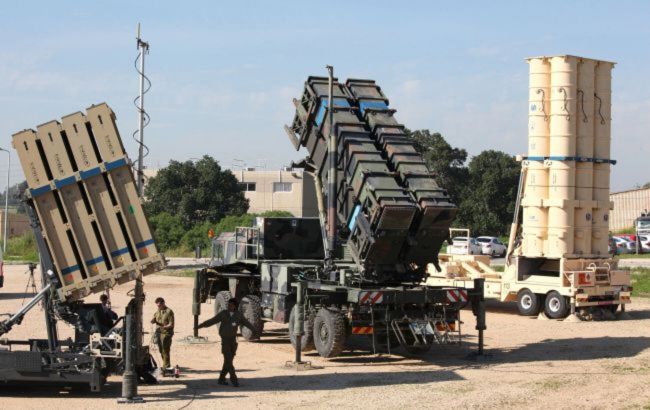US launches new Iron Dome interceptor plant for Israel
 Photo: Iron Dome (Getty Images)
Photo: Iron Dome (Getty Images)
A new plant for the production of Iron Dome interceptors has been opened in the United States, strengthening Israel’s defensive capabilities and boosting military-industrial cooperation with the United States, according to Breaking Defense.
The American company Raytheon, together with Israel’s Rafael, has officially launched a plant in the United States that will manufacture interceptor missiles for the Iron Dome air-defense system.
Construction of the facility began in late 2023, with both companies investing 33 million dollars.
Orders and funding
Israel placed an order for interceptor missiles worth 1.25 billion dollars, funded through US assistance. Earlier, Israel’s Ministry of Defense announced a "multi-billion-dollar contract" with Rafael for the supply of new Tamir air-defense missiles.
Israel’s defense minister said the contract would significantly enhance the country’s air-defense capabilities and allow it to effectively counter national-security threats.
US assistance package
Production of Iron Dome missiles is financed by an 8.7-billion-dollar US aid package approved by Congress in April 2024, which includes 5.2 billion dollars allocated specifically for air-defense systems.
Ceremony and cooperation
The contract signing took place at Israel’s Ministry of Defense headquarters in Tel Aviv, with the participation of US defense attaché Major General Aaron Drake and senior Israeli defense officials.
The new plant strengthens strategic cooperation between the countries and ensures reliable production of key elements of the Iron Dome system.
The United States has presented a new version of its plan for resolving the conflict in Ukraine, which contains between 26 and 28 points, and noted significant progress during the negotiations in Geneva, emphasizing that the document takes into account the positions of both sides.
European countries have developed their own peace plan for Ukraine, which adjusts the balance of negotiating positions and serves as a response to the US 28-point proposal, which was considered too favorable to Russia.

